OVERVIEW
One might wonder what all the fuss is about when it comes to pulling weeds—why is it so important we do it? What will happen if we don't?
Well if you think about what a weed actually is, it will help you answer those questions. Invasive plants, or "weeds", are plants that are not native to their current habitat and have a negative effect on the ecosystem by encroaching on native species' food and/or habitat. When native species are displaced by non-natives, this can have a major impact on the health of our watershed. They also cost our economy by reducing crop yields, endangering livestock, and lowering property values.
This is why the OWC is so appreciative of all the weed control efforts going on in our basin! Thanks to the many activities undertaken by dedicated groups and individuals we all get to enjoy the benefits of a healthier, cleaner watershed!
WHAT'S BEING DONE
The Oldman Watershed Council supports stewardship groups and individuals in their efforts to combat invasive plants. One successful example of these stewardship group events is the Pincher Creek Watershed Group. This group hosts the annual Blue Weed Blitz where enthusiastic community members hand pull blueweed from the riparian area of Pincher Creek in hopes of reducing and eliminating this weed. Other weed species to be aware of in your community are spotted knapweed, leafy spurge, and purple loosestrife.
Want to get involved? Watch for local events in your community or check back in here for upcoming weed pulls. If you are interested in being contacted about future weed pulls, you can sign up as a volunteer.
Donating to the Watershed Legacy Program (WLP) also helps support weed control efforts in our basin. The WLP funds not only weed pulls events, but other projects that focus on invasive species management such as biological control.



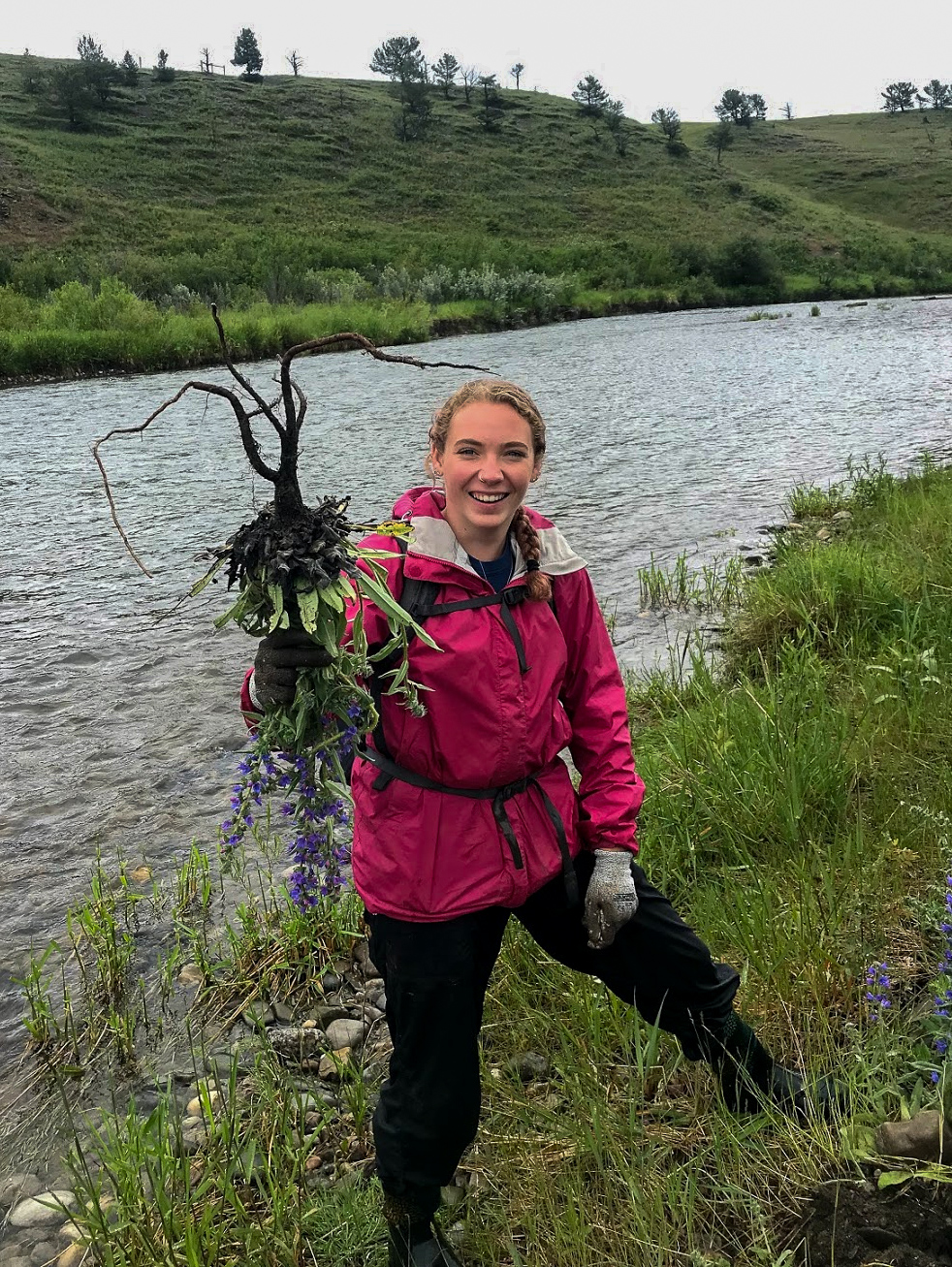
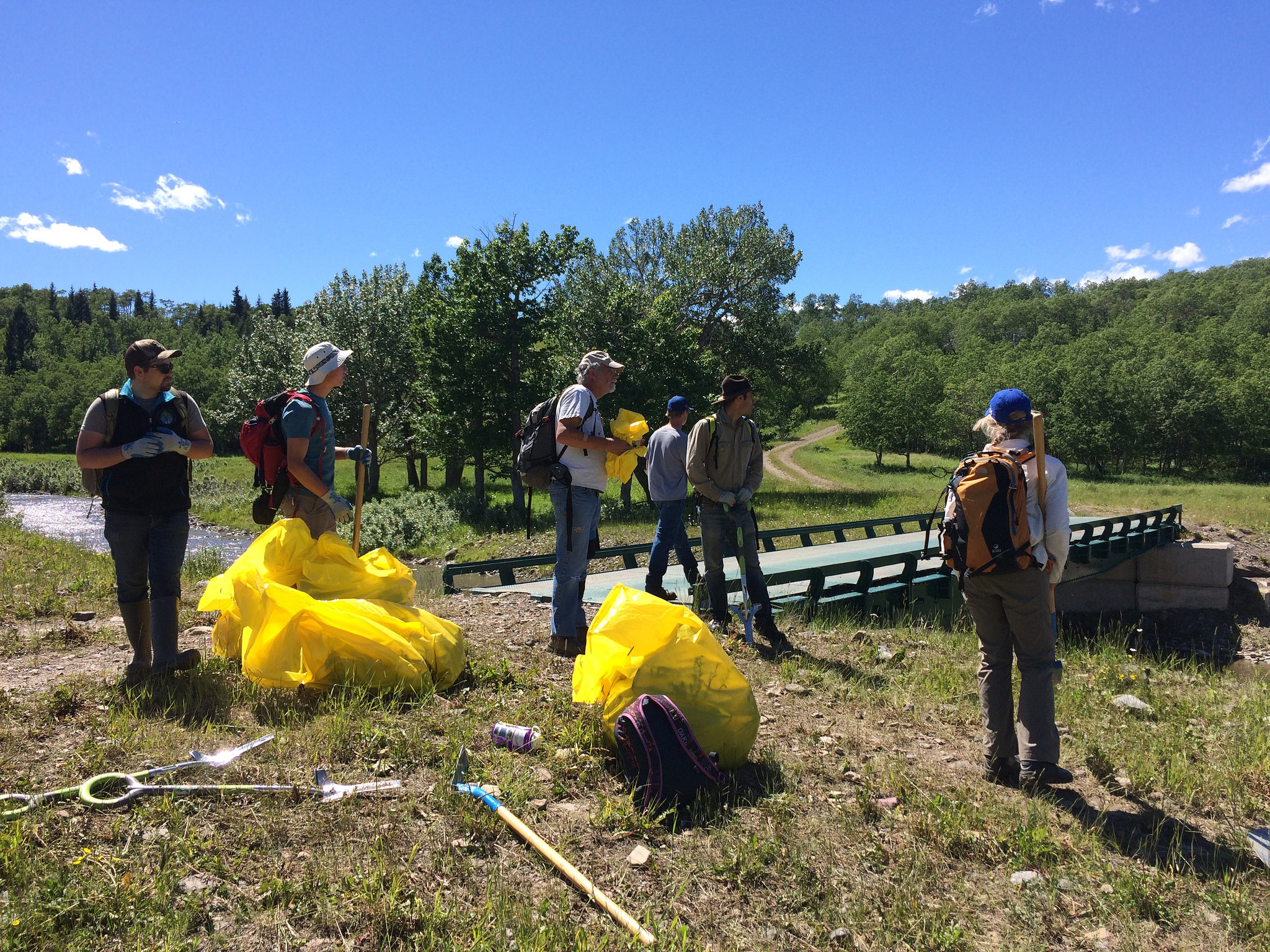
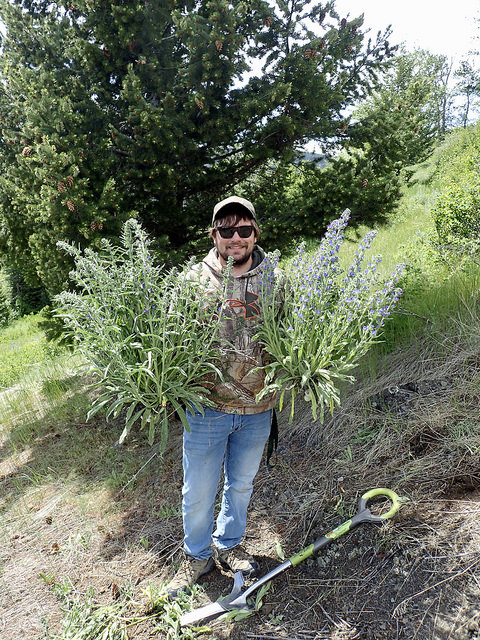
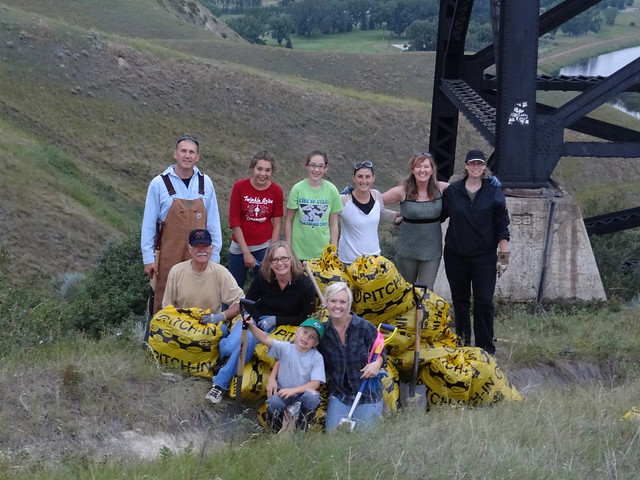
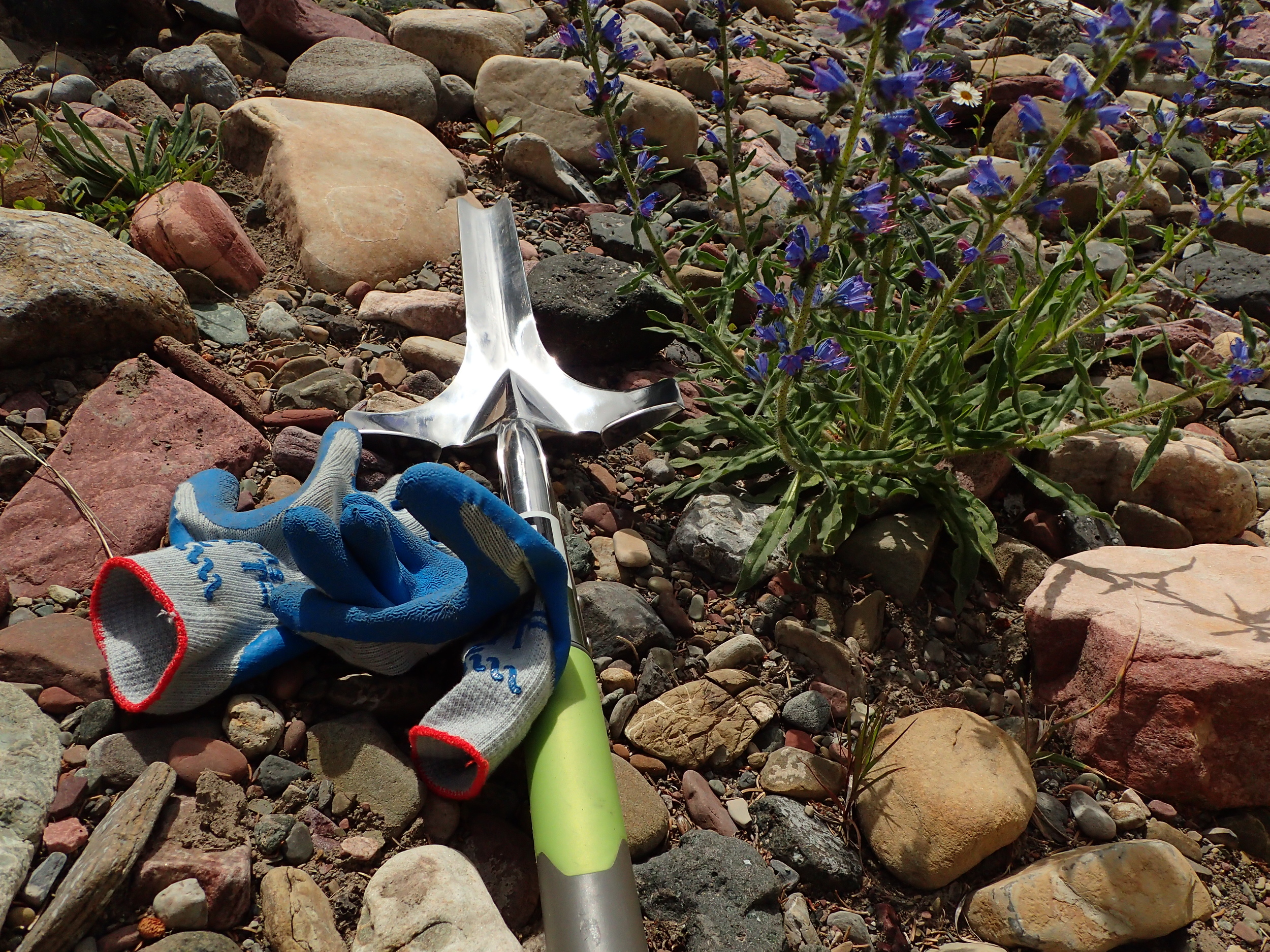




Please help OWC fight the aliens. There are opportunities to get out on the land all summer! Did you know that there are some plants that can devastate our water security in Alberta? Read on to understand the threat that these invaders pose to our drinking water and to learn more about what is being done, and what you can do to help!